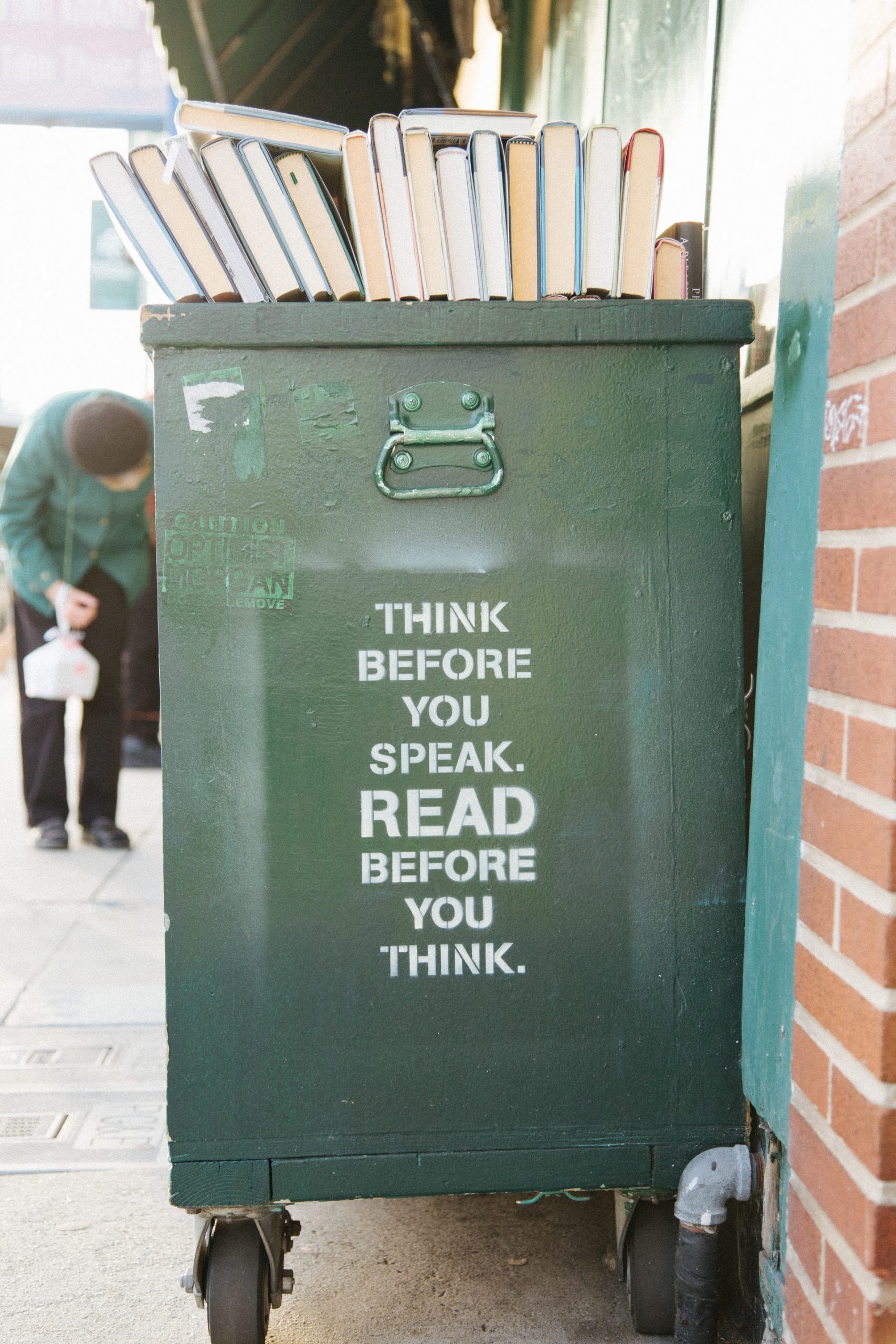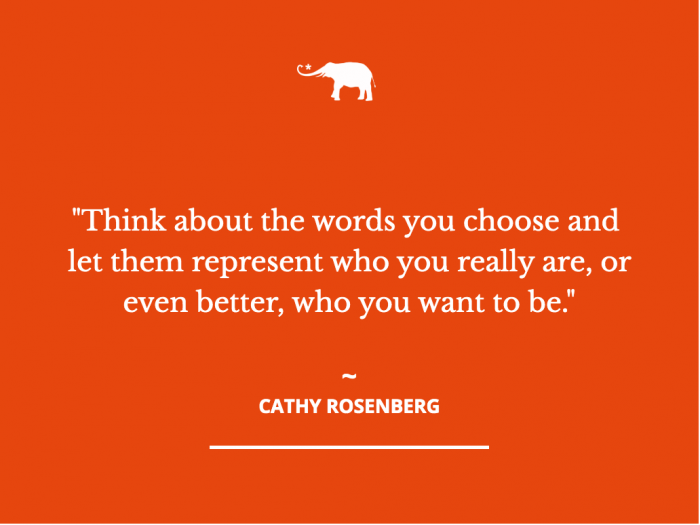Today I read a post on Facebook written by someone who does a great service to the community.
I admire her work. In it, she was passionately discussing an encounter she faced while trying to help someone. She said the person tried to “jew” her down for a price.
The wordsmith in me feels the need to point out the obvious. First of all, “Jew” is not a verb. Second of all, in my opinion, using it this way is offensive. When I heard her use that word, it felt like I’d just been smacked in the face.
“Be careful with your words. Once they are said, they can only be forgiven, not forgotten.” ~ Carl Sandburg
While I wasn’t raised Jewish, I carry the name Rosenberg—as do my children—and feel the insulting generalization as do many who aren’t Jewish. I believe she used the word rather unconsciously, perhaps not even meaning to offend, but she did. In the process, she may have alienated people who could help her with her life’s work.
“Words are free. It’s how you use them that may cost you.” ~ KushandWizdom
A few days ago, I heard a friend who is also a professional (and someone I admire) say she felt like a “retard.” Mind you, we were in a group in a public place. When she used that word, I felt it in my gut like I’d been sucker punched. “Retard” appears in the dictionary, but it is in fact a verb. Its definition is to delay or hold back in terms of progress, development, or accomplishment.
“Words are powerful. They have the ability to create a moment and the strength to destroy it.”
I don’t believe she meant it to be hurtful, or was even aware it might be, but it is, and it was. When we use this word, we should know that it’s unkind and reflects poorly on the user. We could be saying that to someone who has a family member or a friend who is mentally challenged or disabled. Just imagine the scab that rips off every time a family member hears that.
The stigma of having mental health issues or emotional development issues is real. Words can feel like weapons, and the wounds they create affect disabled people and their families. I feel compelled to post this just as I feel I have to point it out when someone uses this word in my presence, and I always do.
“The tongue has no bones but it is strong enough to break a heart. So be careful with your words.”
This is a public service announcement designed to remind readers that kind words can lift a person up and change their entire day. By the same token, the words I highlighted can deeply hurt, even if it wasn’t our intention.
Think about the words you choose and let them represent who you really are, or even better, who you want to be. I hope this post creates a consciousness and awareness that every word we speak can make a difference.
Choose the words that mean what you are trying to say and people will want to hear more. Choose a word that is fundamentally cruel and you’ve called your entire character into question.
Here’s the CliffsNotes version: if you can’t find it in the dictionary, it’s not a word you need to include in your vocabulary. Put yourself in someone else’s shoes and walk straight to a local bookstore to purchase a thesaurus. Then instead of bingeing on Netflix, start finding new words for old ways.
“Always keep your words soft and sweet, just in case you have to eat them.” ~ Andy Rooney
~

 Share on bsky
Share on bsky






Read 13 comments and reply